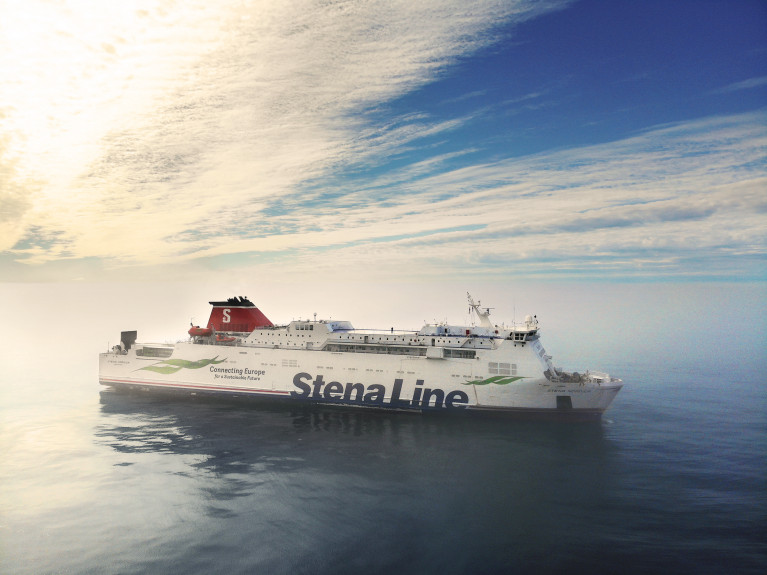Displaying items by tag: 'Nordica' returns
Former Irish Sea Ropax Returns from Scandinavia Service to Provide Cover During Dry-Dockings
On Stena Line's Dublin Port-Holyhead service today, a ropax that served the Ireland-Wales route has returned following a repositioning voyage from Scandinavia so to provide cover on the Irish Sea during routine annual dry-dock overhauls, writes Jehan Ashmore.
Stena Nordica which normally serves between Karlskrona, Sweden and Gdynia in Poland, had departed from the Baltic Sea port on Friday. This to enable covering in for fleetmates of the Gothenburg based company counterparts serving between Ireland and Britain.
As for operations firstly in the Baltic Sea with the Stena Nordica's roster which has been assigned to Stena Gothica. Afloat previously reported that in May this ship is to join sister Urd on Stena Line's new and first route connecting Finland, albeit a freight-only service.
It was during the weekend that Afloat tracked the 2001 built Stena Nordica in the Skagerrak while off Jutland in northern Denmark, where the nearest ferryport, Hirtshals has links to Norway and the Faroe Islands. The voyage also included the crossing of the North Sea and via Scotland until arriving at the Welsh port.
Not every detail of the ropax's relief cover is listed by Afloat, given the complexity and changes that may take place during the ship's return on the Irish Sea due to operational reasons. However, Afloat can report was in observing Stena Nordica in Dublin Bay, with as the operator had planned this afternoon's sailing from Holyhead completed, marking the start of covering the overhauls.
This sees Stena Nordica take over the roster of Stena Adventurer which in turn covers those of Stena Estrid which today Afloat tracked having departed Holyhead and bound for Belfast. This is to cover dry-docking for another E-Flexer class, the Stena Embla on the Birkenhead (Liverpool) route.
The Stena Nordica is no stranger to the Irish Sea as in 2008 was transferred to the Ireland-Wales route. As a result the ropax became the routes second ship to the Stena Adventurer until replaced by the Stena Superfast X.
The 405 passenger/ 375 car/90 lorry capacity Stena Nordica was however originally commissioned by P&O (Irish Sea) Ferries as their European Ambassador which entered service in 2001. The then newbuild made a debut on the Liverpool to Dublin route. This was followed by the operators short lived service, having relocated the UK port to Mostyn in north Wales until operations resumed on Merseyside and continue do to so.
Other routes included P&O's weekend service from Dublin to Cherbourg with the French connection also occcasionally calling via Rosslare Europort. The was the first ever passenger car ferry link between the Irish capital and France.
Stena Nordica will also see duty on the St. Georges Channel when later this month the ropax takes over the Rosslare-Fishguard route, relieving routine serving veteran Stena Europe. There have been recent rumours spectulating as to the route's future and Stena Nordica replacing the 1981 built Stena Europe' which is scheduled on 24 February to be overhauled at A&P's dry-dock facility in Falmouth, Cornwall.
Afloat also at the weekend tracked at A&P Falmouth, P&O Ferries Norbay, one of the Dublin-Liverpool ropax sisters, having sailed directly from Larne where duties took place on the North Channel link to Cairnryan.
Asides 'Nordica's Stena career, there have also been charters, firstly to DFDS on the Dover-Calais route though this too saw a change of name as Malo Seaways complete with livery change.
Another charter during the ships two decades has seen a spell spent in the Meditteranean for operator GNV with at the time the ship's 'Stena' name reverted.




























































